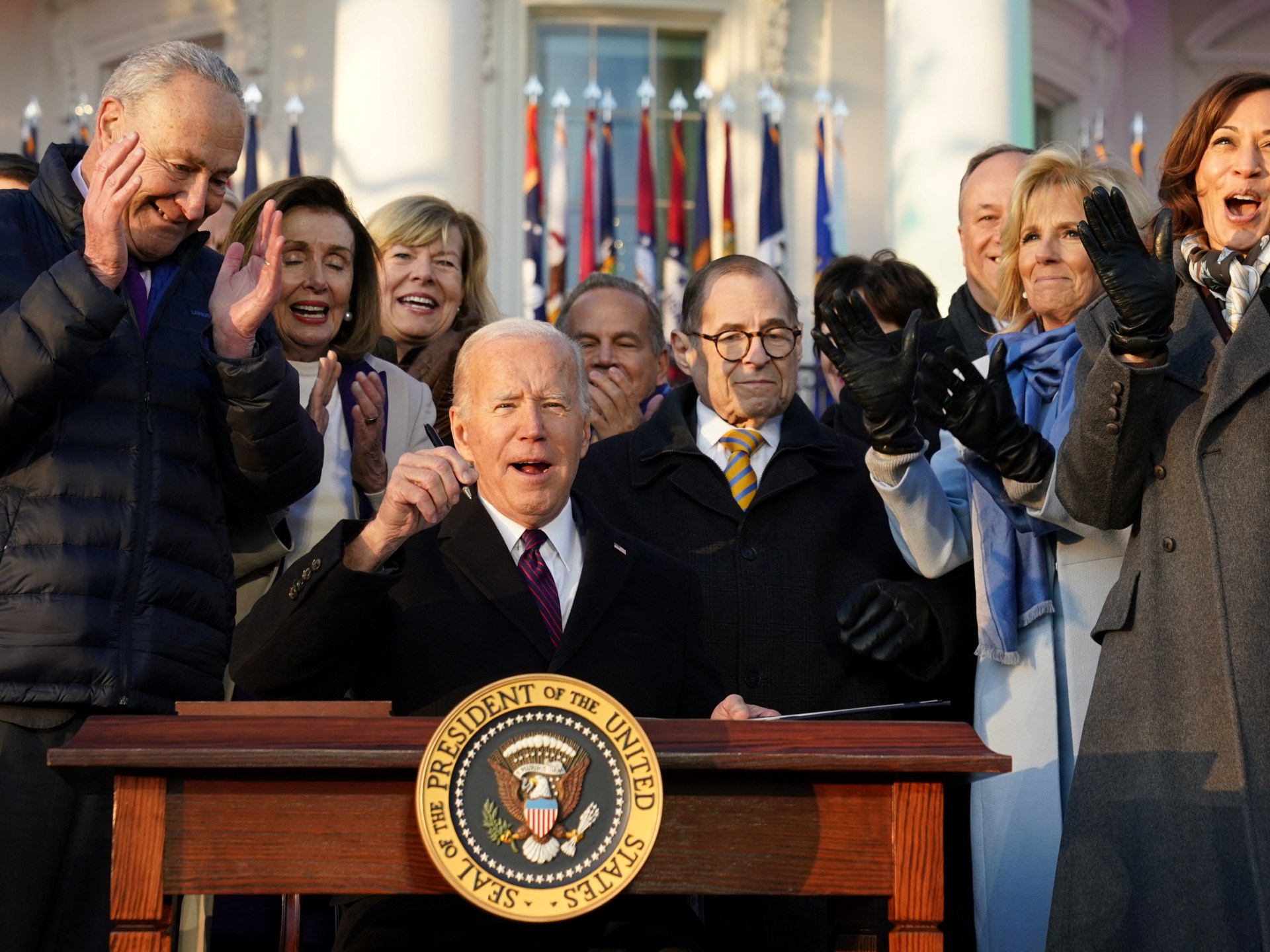Washington — U.S. Muslims are under social pressure from many major religious groups in America over how to reconcile religious teachings with the challenges of heterogeneous social phenomena, which in many cases have evolved and received wider societal acceptance over time.
Sexual identities and relationships are at the top of these phenomena, which have become more widely accepted socially and legally, culminating in great promotion by the administration of President Joe Biden.
The United States is witnessing a sharp ideological clash between conservative and religious currents close to the Republican Party on the one hand, and the liberal progressive currents close to the Democratic Party.
Differences over identity have become one of the most important issues on the minds of millions of American families as each side pushes an extremist agenda that it wants to impose on everyone. American Muslims have found themselves in the middle of a societal battle that seems to have no end in the near future.
Since the U.S. Supreme Court lifted all bans on same-sex marriage in 2015 and legalized it in all 50 states and required all states to recognize licenses for same-sex marriages from outside the states, sexual identity issues have become one of the most divisive and polarizing issues among Americans.
There was no specific position known to millions of American Muslims on these issues. At the same time, it is not known for sure the number of Muslims in the United States, as US laws prohibit the collection of religious affiliation information in its official general census, but experts estimate that the proportion of Muslims ranges between 1 and 2% of the total population of the United States of 333 million, or between 3.3 million and 6.6 million people, and Muslims are spread in all US states where the number of mosques exceeded 2800,<>.
Dozens of Muslim scholars, activists and preachers issued a statement clarifying the position of Islamic religious teachings on these challenges, while affirming the right to freely express their religious beliefs, while recognizing the constitutional obligation to live in peace with those whose beliefs differ from ours, ushering in a new era in the face of this challenge for millions of Muslim families.
The statement was titled "Divergent Perspectives: An Illustration on Sexual and Gender Ethics in Islam" in which it presents the position of Islamic teachings on the issue of sexual practices and identities.
The dilemma of public schools and libraries
Progressive currents are pushing hard in many states to promote values focused on highlighting the nature of LGBT society among schoolchildren through legislation and regulations, some of which even give children the right to determine or change their sexual identity away from what it was when they were born.
In some cases, these regulations ignore parental consent, undermine the ability of Muslim parents to teach their children religiously based sexual ethics, violate their constitutional right to practice their religion freely, and contribute to an atmosphere of intolerance towards religious communities.
Many public libraries, especially in liberal states under Democratic rule, also have many books promoting the need to recognize multiple other sexual identities besides men and women. Some of these books promote LGBT characters, portraying them as heroes or an oppressed victim.
Florida Governor Ron DeSantis, for example, banned many of the practices in his state's schools and libraries, and banned any gay representatives from speaking in front of elementary school students, policies supported by the vast majority of the state's population.
Move even if it comes late
The statement explained that Islamic religious teachings allow sexual relations within the framework of marriage only, and marriage takes place only between men and women, and the statement also explained that Islamic teachings explicitly condemn same-sex sexual relations, and that humans consist only of males and females, and that men and women are spiritually equal before God, even if each has different characteristics and roles.
The statement also noted that Islamic teachings explicitly denounce the imitation of the appearance of the opposite sex, and as a general rule, Islam strictly prohibits medical procedures aimed at changing the sex of healthy individuals, regardless of whether these procedures are called "fixation" or "confirmation." In rare cases involving some individuals born in a state of biological uncertainty, such as sexual development disorders, Islam allows them to seek medical care for corrective reasons.
Pressure that won't stop
In recent years, some religious groups have reinterpreted and revised their religious beliefs to accommodate the ideology of the LGBT community. However, the statement stressed that attempts by some to reinterpret Islamic texts in favor of affirming homosexuality are completely and completely rejected.
The statement stressed the rejection of such efforts as religiously untenable because these aspects are of the category of immutable principles and are therefore not subject to review.
Our constitutional right to hold on to our opinions
The statement noted that the signatories realized that it would clash with the goals of LGBT supporters, hence the statement stressed "recognition of their constitutional right to live in peace without harm." But he stressed the importance of "our God-given constitutional rights to uphold, live and disseminate our religious beliefs in the best way without fear of legal reprisals or systematic marginalization. He stressed that peaceful coexistence does not require approval or acceptance of what religious teachings reject.
The statement called on the authorities to "protect our constitutional right to practice our religious beliefs freely, without fear of harassment, and to oppose any legislation that seeks to stifle the religious freedoms of religious communities."
Sheikh Omar Suleiman, a renowned Palestinian-American preacher who heads the Yaqeen Institute for Islamic Research, noted that the statement would not be opposed because it reflected teachings entrenched in the Quran, Sunnah and Islamic traditions. Sheikh Suleiman stressed the need to "be able to coexist peacefully without having to abandon our principles."

